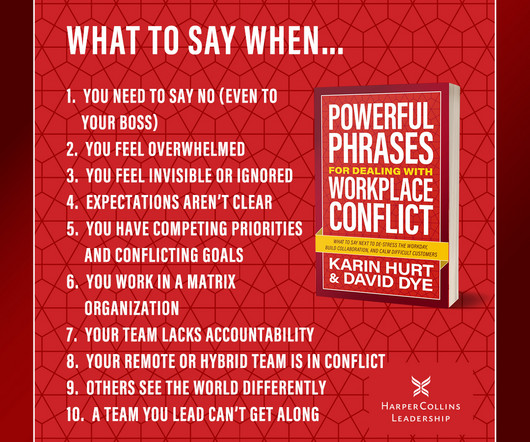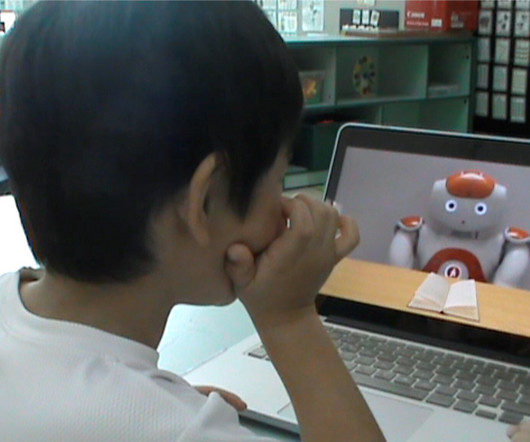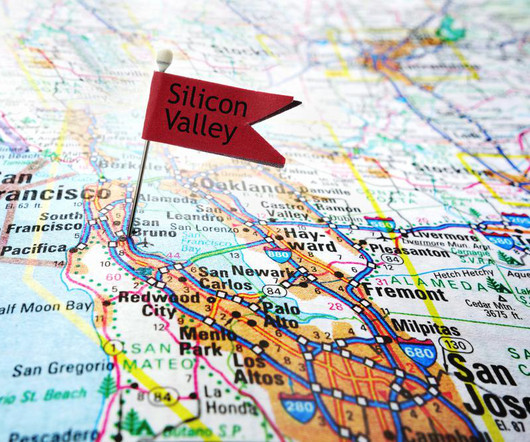Why “Agree to Disagree” Stinks and What to Say Instead for Better Work Relationships
Let's Grow Leaders
MAY 27, 2024
“Agree to disagree” is dismissive, shuts down collaboration, and prevents meaningful solutions. Faced with conflict at work, you might think “let’s agree to disagree” is an easy way to move on from the conversation. The words seem peaceful and hint at mutual respect. But in actual use, they aren’t peaceful, or helpful, at all. The phrase implies a deadlock, which can prevent the resolution of underlying issues and hinder productive work relationships.




















Let's personalize your content